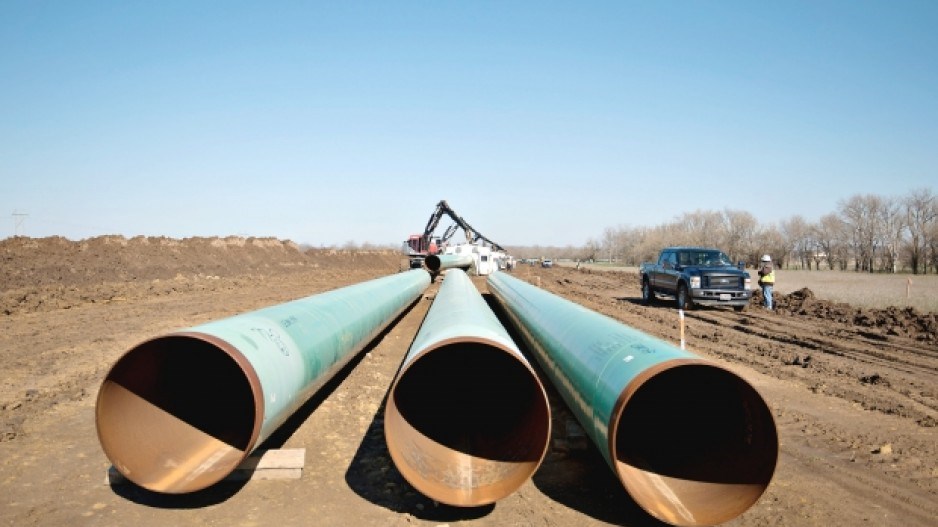Kinder Morgan Canada filed its long-awaited formal application to the National Energy Board (NEB) on December 16 to expand its contentious Trans Mountain pipeline.
Kinder Morgan is seeking to twin the existing pipeline, which runs from north of Edmonton to the Westridge Terminals in Burnaby. The $5.4 billion expansion will increase the capacity of the pipeline to 890,000 barrels per day from 300,000.
According to a Kinder Morgan press release, the application to the NEB is a "document prepared to seek permission to build, operate and maintain the necessary facilities" required for the expansion. The application is 15,000 pages long and stands nearly two metres high.
The project will be subject to a public review. The NEB will establish the schedule for the public hearings. If approved, the expanded pipeline could be in operation by late 2017.
The application includes the company's preferred route for the new pipeline, detailed engineering data and outlines mitigation measures for potential environmental risks and increased tanker traffic in the Burrard Inlet.
The majority of the new pipeline will run along the existing Trans Mountain line. About 17% of the expansion will be re-routed.
In a conference call on December 16, Kinder Morgan president Ian Anderson told reporters he expects most of the oil transported along the new pipeline to be shipped to Asia, but said the final destination of the oil is up to refineries and marketers, not Kinder Morgan.
"The majority will go to Asia," said Anderson.
"But more volume will go to California as well. On a day-to-day basis it will be dependent on market conditions."
Energy-hungry, growing markets in Asia are considered critical new avenues for the sale of Canadian oil by the country's energy industry. Currently, nearly all of Canada's oil exports are sent to the United States, but the U.S. market is expected to stall for the next 30 years, forcing Canada to search for new destinations for its oil.
Although Kinder Morgan's application has been expected for months, news of the filing sparked backlash from environmental groups.
Caitlyn Vernon, campaign director for the Sierra Club of BC, stressed an increase in tanker traffic from an expanded pipeline threatens the province's sensitive coastline.
"The proposed Kinder Morgan pipeline and over 400 tankers per year would pose a daily danger to B.C.'s salmon rivers and coast that so many families depend on for jobs and recreation," said Vernon.
"For Kinder Morgan, pipeline spills are merely the cost of doing business. But for British Columbians, toxic spills of diluted bitumen into salmon rivers will negatively impact our health, jobs, property values, and the environment we all depend on."
Ben West, Vancouver-based Tar Sands campaign director with ForestEthics Advocacy, told Business in Vancouver that Kinder Morgan will face opposition not just from those concerned about the coast, but also from residents in urban areas where the pipeline runs.
"Kinder Morgan wants to promote the fact that this is a simple twinning of an existing pipeline," said West.
"But they are overlooking the fact that it travels through some of the most heavily populated parts of the province."
The existing Trans Mountain pipeline has been in place for 60 years, although different companies have owned it over that time. Kinder Morgan purchased the pipeline in 2005.




